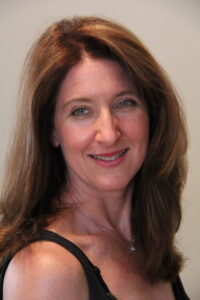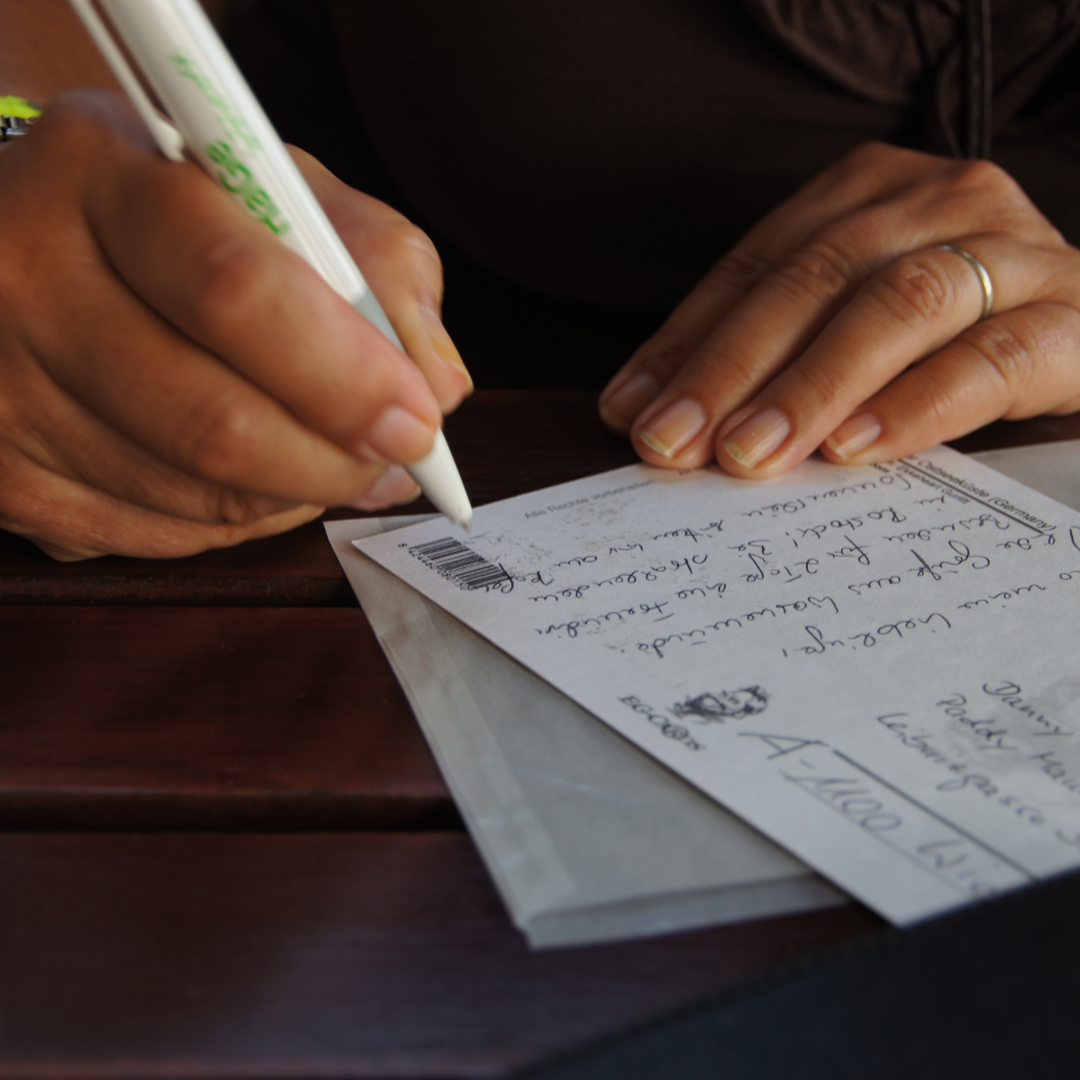Tuesday, June 17, 2025
12-1:30 p.m. EDT
Write your own postcards to a loved one, to your younger self, to an artist you love, or to even to G-d in this interactive writing workshop with Poet and Professor Lisa Grunberger. Jewish thought has much to teach us about anger and compassion. For example, Rebbe Nachman taught that the best antidote for one’s anger is a compassionate heart. In Hebrew, the word for “compassion” (rachamim), shares the same root as the words for “womb” (rechem) and for “tomorrow” (machar).
Writing is cathartic, a ritual that helps us process complex emotions like grief and anger. You are encouraged to bring photos of people, alive or not, you might want to write postcards to so their energy is close. We will have time to share our spontaneous postcard writing with each other; you will be surprised at the creative writing that emerges with these short postcard-writing exercises. A postcard can spark the first lines of a novel, a song, or even heal a relationship. Discover how writing from the emotional “place” of pain, love, curiosity, anger, or grief can create a bridge to heal.
This session will be recorded and sent to participants. We encourage live attendance for you to get the most out of the experience.
 Pushcart nominee and Temple University English Professor Lisa Grunberger is a first-generation American writer. Her award-winning poetry book, I am dirty (Moonstone Press), and Born Knowing (Finishing Line Press), are lyrical reflections on life as a woman, a mother, and a daughter of Holocaust survivors. Her book, Yiddish Yoga: Ruthie’s Adventures in Love, Loss and the Lotus Position (Harper Collins), about a widowed grandmother who does yoga to help her grieve, is currently being adapted as a musical. Almost Pregnant, her play about infertility and assisted reproductive technologies, is published by Next Stage Press.
Pushcart nominee and Temple University English Professor Lisa Grunberger is a first-generation American writer. Her award-winning poetry book, I am dirty (Moonstone Press), and Born Knowing (Finishing Line Press), are lyrical reflections on life as a woman, a mother, and a daughter of Holocaust survivors. Her book, Yiddish Yoga: Ruthie’s Adventures in Love, Loss and the Lotus Position (Harper Collins), about a widowed grandmother who does yoga to help her grieve, is currently being adapted as a musical. Almost Pregnant, her play about infertility and assisted reproductive technologies, is published by Next Stage Press.
Her poetry book, Mercy Wombs, was the finalist in Settlement House American Poetry Prize for first-generation poets. She is a widely published poet whose work has appeared in The New York Times, The Paterson Literary Review, Mudfish, The Drunken Boat, Bridges: A Jewish Feminist Journal, Philadelphia Poets, Paroles des Jour, Dialogi, Crab Orchard Review, Mom Egg Review, The Baffler, and Fine Linen Press. Her poems have been translated into Hebrew, Slovenian, Russian, Spanish and Yiddish.


 Pushcart nominee and Temple University English Professor Lisa Grunberger is a first-generation American writer. Her award-winning poetry book, I am dirty (Moonstone Press), and Born Knowing (Finishing Line Press), are lyrical reflections on life as a woman, a mother, and a daughter of Holocaust survivors. Her book, Yiddish Yoga: Ruthie’s Adventures in Love, Loss and the Lotus Position (Harper Collins), about a widowed grandmother who does yoga to help her grieve, is currently being adapted as a musical. Almost Pregnant, her play about infertility and assisted reproductive technologies, is published by Next Stage Press.
Pushcart nominee and Temple University English Professor Lisa Grunberger is a first-generation American writer. Her award-winning poetry book, I am dirty (Moonstone Press), and Born Knowing (Finishing Line Press), are lyrical reflections on life as a woman, a mother, and a daughter of Holocaust survivors. Her book, Yiddish Yoga: Ruthie’s Adventures in Love, Loss and the Lotus Position (Harper Collins), about a widowed grandmother who does yoga to help her grieve, is currently being adapted as a musical. Almost Pregnant, her play about infertility and assisted reproductive technologies, is published by Next Stage Press.